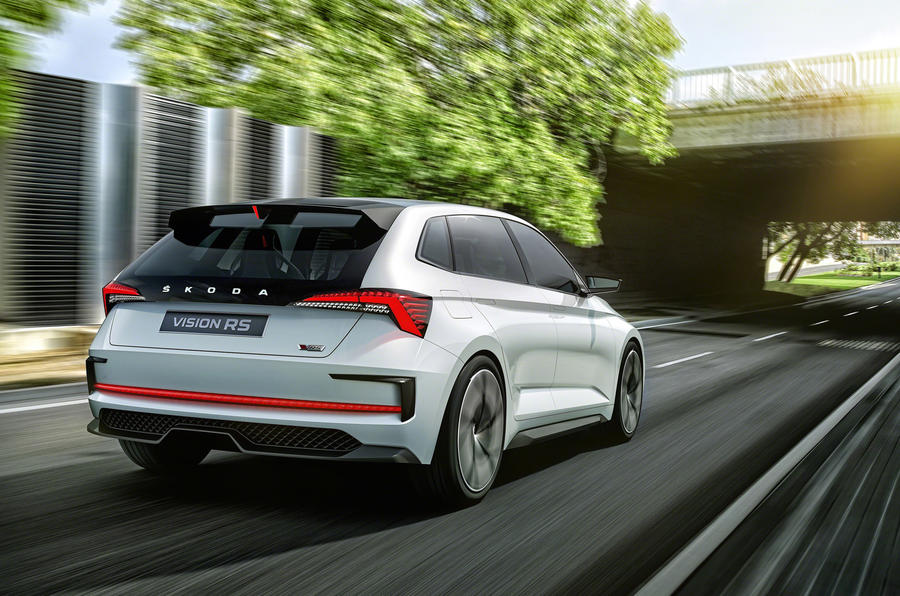What do you do if you’re a brand like Skoda that is known for good-value, no-nonsense cars but are forced to adopt expensive electric technology because regulations demand it?
Answer: you fit it to your most desirable specification of model, the vRS high-performance version, where the higher price better masks the cost of the technology.
“Without electrification we would never be able to meet targets set by EU legislation,” said Bjorn Kroll, Skoda’s leader on electric cars boss. He was speaking at a preview of the Vision RS, a concept previewing a plug-in hybrid vRS version of the new Rapid, Skoda’s new Volkswagen Golf rival that is due to arrive next year.
On paper, it’s a tempting prospect. The drivetrain is likely to carry over from the concept, meaning 242bhp from a 1.5-litre 148bhp turbo petrol mated to a 101bhp electric motor (the two motors don’t produce peak power at the same time, hence why those numbers don’t add up).
Long-term test review: Skoda Octavia vRS
The powertrain will be good for a 0-62mph figure of 7.1 seconds, Skoda reckons. A bigger battery means a possible 43 miles of electric-only driving range (the outgoing VW Golf GTE managed only 31) and should give the satisfying feeling of driving a torquey electric car. It also means a sub 50g/km CO2 figure, important to take advantage of subsidies, or even possible future city access.
The problem is cost. “We can’t ask a £3000 surcharge. We’re not stupid. We know who our customers are,” Kroll said.
So Skoda waited until the cost of battery cells came down. “When VW first started with plug-on hybrids in 2015, it was simply too expensive,” Kroll explained.
A PHEV powertrain will still be expensive compared to a conventional diesel or petrol, but wrapping it in a vRS model keeps that Skoda promise of always giving something a bit extra compared to similarly priced rivals – or so the Czech make hopes.
Skoda is planning to offer 10 electrified cars, both plug-in hybrids and battery-only EVs, between now and 2025. Next year comes the Superb PHEV (unlikely to be badged vRS, but not base spec either) as well the Citigo EV and possibly the production Rapid vRS.
None of those models will cost crazy money, according to the firm. Krolls added: “Whatever we do we’re going to keep our promise of value for money. We’re going to make e-mobility for the masses.”







Join the debate
Add your comment
Is it green washing because
Is it green washing because they launched a high powered diesel SUV today? The entire VW group is very keen to talk about electrification, but in reality their business plan is more and more SUVs, and in Europe this means more diesel!
Telling comment
The problem is cost. “We can’t ask a £3000 surcharge. We’re not stupid. We know who our customers are,” Kroll said.
Interesting that the 2 motors
Interesting that the 2 motors dont produce peak power at the same time, I know electric motors produce max torque at zero revs, but never actually thought about their power curves. Its time manufacturers started publishing proper torque/power figs for electric motors as they do for petrol and diesel engines. Its also about time they started putting rev counters on EVs and hybrids.